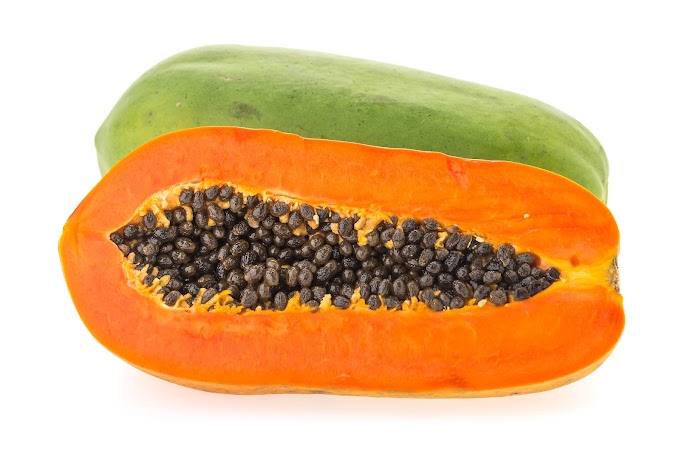Meat And Its Nutritional Benefits
I. Introduction
A. Brief history of meat consumption
There is evidence that early humans hunted animals for meals more than two million years ago, and people have been eating meat for thousands of years. Human evolution and development have been significantly influenced by the diet of meat since it offers vital nutrients for life and growth.
B. Definition of meat
Animal flesh that is used as food is referred to as meat, and it usually comes from domesticated or wild animals. It consists of beef, hog, lamb, chicken, and shellfish in addition to processed meats such deli meats, bacon, and sausages.
C. Importance of meat in the diet
Protein, which is crucial for the body's development and repair of tissues, may be found in meat. It also offers a variety of other nutrients, including as vitamin B12, iron, zinc, and omega-3 fatty acids, which are crucial for maintaining general health and wellbeing. Meat can be a significant component of a healthy diet for many people, even if plant-based diets can offer ample nourishment.
II. Nutritional Composition of Meat
A. Macronutrients
- Protein: The body needs protein for tissue development and repair, and meat is a great supply of this nutrient. Meat contains all nine of the necessary amino acids that the body needs but cannot synthesize on its own. Protein is made up of amino acids. Protein level in meat varies depending on the kind, with beef and hog typically having more per serving than poultry and shellfish.
- Fat: Meat also contains dietary fat, which gives the body energy and aids in the absorption of specific vitamins. Depending on the type of meat and the cut, the amount of fat in the meat can vary greatly, with some cuts being very lean and others having more fat. When ingested in excess, saturated and trans fats, which are present in some forms of meat, can raise the risk of heart disease.
- Carbohydrates: Carbohydrates, the body's primary fuel source, are not widely found in meat. Yet, certain processed meats could have extra sugars or other carbs in them.
B. Micronutrients
- Vitamins: The synthesis of red blood cells and the health of the neurological system both depend on vitamin B12, which is one of several necessary vitamins that are abundant in meat. Other vitamins found in meat include vitamin D, which promotes bone health and aids in calcium absorption, as well as vitamin A, which is crucial for immunological and visual health.
- Minerals: Iron, zinc, and selenium are among the many nutrients found in meat. Zinc is necessary for immune system health as well as wound healing, whereas iron is crucial for the creation of hemoglobin, which transports oxygen in the blood. Antioxidant mineral selenium aids in preventing cell deterioration. Red meat is often a rich supply of iron and zinc, while seafood is a good source of selenium. Various varieties of meat contain varied levels of these nutrients.
III. Health Benefits of Meat Consumption
A. Protein
- Muscle growth and repair: Protein, which is crucial for repairing and regenerating muscle tissue, is abundant in meat. Because to this, it is a crucial meal for athletes and anybody wishing to increase or maintain their muscle mass.
- Immune system support: Protein is crucial for the immune system because it aids in the production of antibodies that ward against illnesses and infections. The amino acid glutamine, which has been demonstrated to enhance immunological function, may be found in meat in particular.
- Satiety and weight management: Meat is a satiating food that can improve weight control by preventing hunger and filling you up. Compared to carbs or fats, protein has been found to be more satisfying, and meat is a wonderful source of healthy fats that may keep you feeling content and full.
B. Vitamins and Minerals
- Iron: Heme iron is abundant in meat and is easier for the body to absorb than non-heme iron, which may be found in plant-based meals. Red blood cells use iron to make hemoglobin, which is responsible for carrying oxygen throughout the body.
- Zinc: Moreover, meat is an excellent source of zinc, which is necessary for DNA synthesis, wound healing, and immunological function.
- Vitamin B12: The finest food source for vitamin B12, which is necessary for the creation of red blood cells and the proper operation of the neurological system, is meat. Meat is an essential component of the diet for vegetarians and vegans who may be at risk of shortage since vitamin B12 is largely found in animal products.
C. Omega-3 Fatty Acid
- Heart health: Omega-3 fatty acids, which are vital for heart health, may be found in several forms of meat, including fatty fish. By lowering triglycerides, decreasing inflammation, and improving blood vessel function, omega-3 fatty acids can minimize the risk of heart disease.
- Brain function: The brain needs omega-3 fatty acids to operate properly, especially as we age and mature. They could lessen the possibility of cognitive deterioration and elevate mood.
D. Conjugated Linoleic Acid (CLA)
- Reduced risk of cancer: Conjugated linoleic acid (CLA), a kind of fatty acid that has been demonstrated to have anti-cancer effects, may be found in meat, especially in beef and lamb. Breast, colon, and prostate cancer risk may be decreased with CLA supplementation.
- Improved body composition: Also, it has been demonstrated that CLA enhances body composition by lowering body fat and boosting lean muscle mass. It is therefore well-liked by sportsmen and bodybuilders as a supplement.




0 Comments